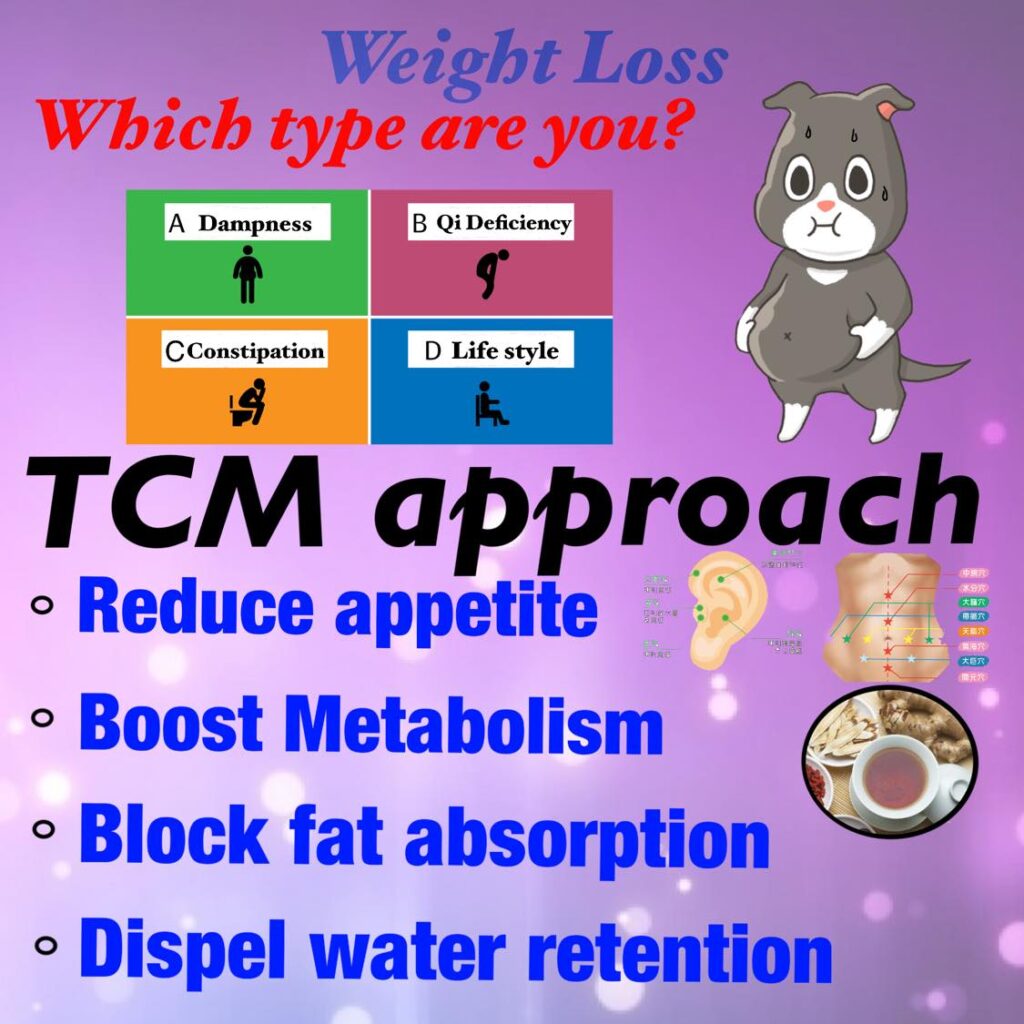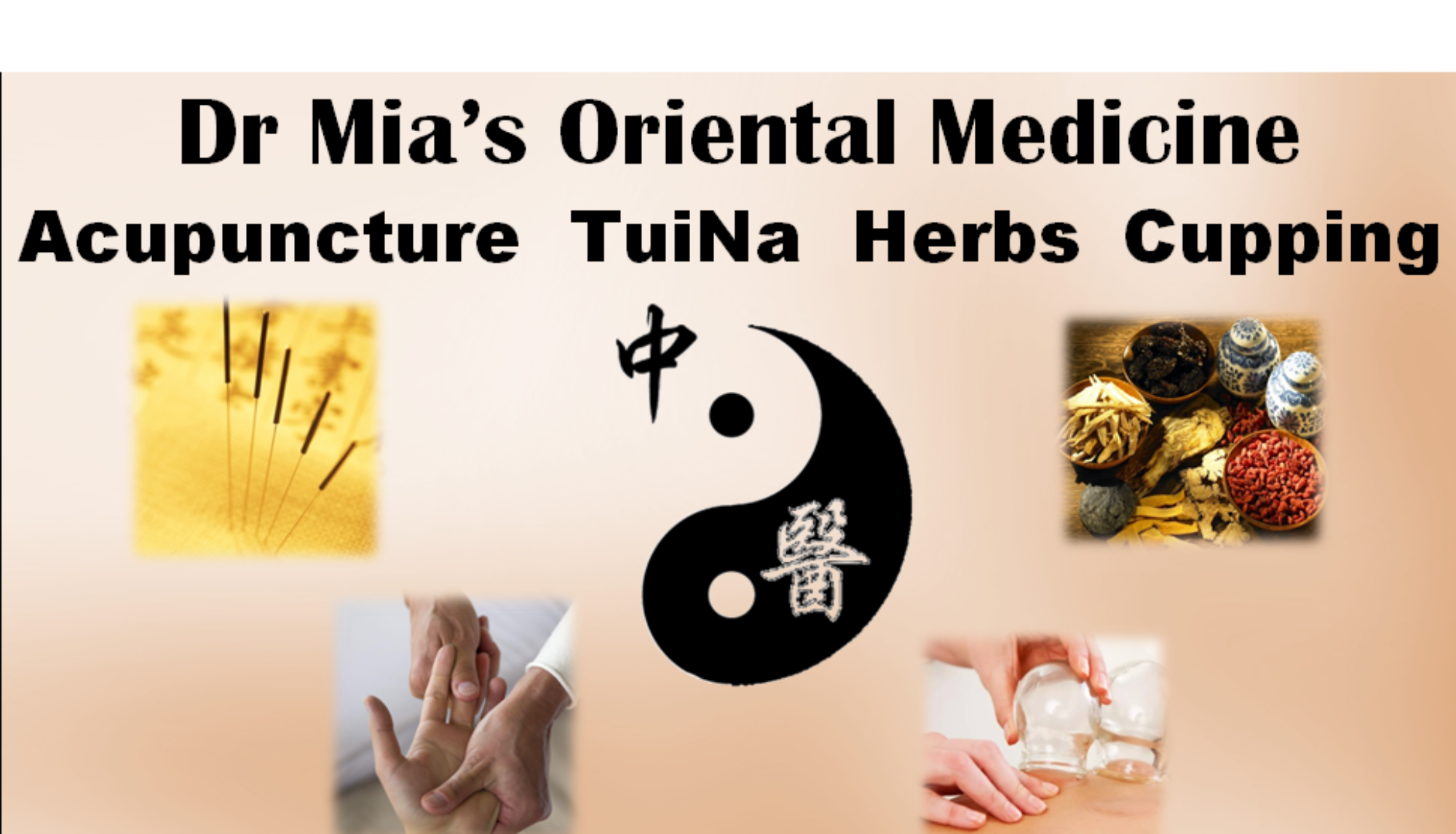Traditional Chinese Medicine (TCM) offers a holistic approach to weight management, focusing on balancing the body’s internal systems, improving metabolism, and addressing the root causes of weight gain rather than just suppressing symptoms. Here are some key TCM principles and methods for weight management:
1. TCM Theory Behind Weight Gain
In TCM, excess weight is often linked to:
- Spleen Qi Deficiency – The spleen is responsible for transforming and transporting nutrients. Weak spleen Qi leads to poor digestion, dampness accumulation, and fat storage.
- Dampness & Phlegm Retention – Poor diet, stress, and weak digestion can cause “dampness” (excess fluids) and “phlegm” (metabolic waste), leading to bloating and obesity.
- Liver Qi Stagnation – Emotional stress disrupts liver function, affecting digestion and leading to imbalances.
- Kidney Yang Deficiency – Weak kidney energy slows metabolism, making it harder to burn fat.
2. TCM Approaches to Weight Loss
A. Herbal Medicine
TCM practitioners prescribe customized herbal formulas to:
- Strengthen Spleen Qi (e.g., Huang Qi, Bai Zhu, Dang Shen)
- Resolve Dampness & Phlegm (e.g., Fu Ling, Chen Pi, Ban Xia)
- Regulate Liver Qi (e.g., Chai Hu, Xiang Fu)
- Warm Kidney Yang (e.g., Rou Gui, Du Zhong)
Common weight-loss formulas:
- Fang Feng Tong Sheng San (for heat and dampness)
- Wu Ling San (for water retention)
- Shen Ling Bai Zhu San (for spleen deficiency)
B. Acupuncture & Electro-Acupuncture
Acupuncture helps regulate appetite, digestion, and metabolism by targeting points such as:
- Zusanli (ST36) – Strengthens spleen and stomach
- Tianshu (ST25) – Reduces abdominal fat
- Fenglong (ST40) – Resolves phlegm and dampness
- Ear Points (Hunger, Shenmen) – Controls cravings
C. Dietary Therapy (TCM Nutrition)
- Avoid damp-producing foods: Dairy, greasy/fried foods, sugar, processed foods.
- Eat warm, cooked foods: Congee, soups, steamed veggies, ginger, cinnamon.
- Bitter & aromatic foods aid digestion: Bitter melon, radish, lotus root.
- Small, frequent meals to support spleen function.
D. Qi Gong & Tai Chi
Gentle movements improve Qi circulation, reduce stress, and enhance metabolism.
E. Cupping & Gua Sha
Helps break down fat deposits, improve circulation, and detoxify.
3. Lifestyle & Mindset
- Stress management (meditation, deep breathing) to prevent liver Qi stagnation.
- Regular sleep to support kidney and metabolic health.
- Avoid overeating cold/raw foods (weakens digestion).
4. Scientific Support
Studies suggest acupuncture and TCM herbs can:
- Regulate hormones (leptin, ghrelin) affecting hunger.
- Improve insulin sensitivity.
- Reduce inflammation linked to obesity.
Conclusion
TCM weight management is a gradual, sustainable approach that focuses on correcting imbalances rather than extreme dieting. For best results, consult a licensed TCM practitioner for personalized treatment.
Would you like recommendations for specific herbs or acupressure techniques?
Weight Loss Classes and Treatment Programs


